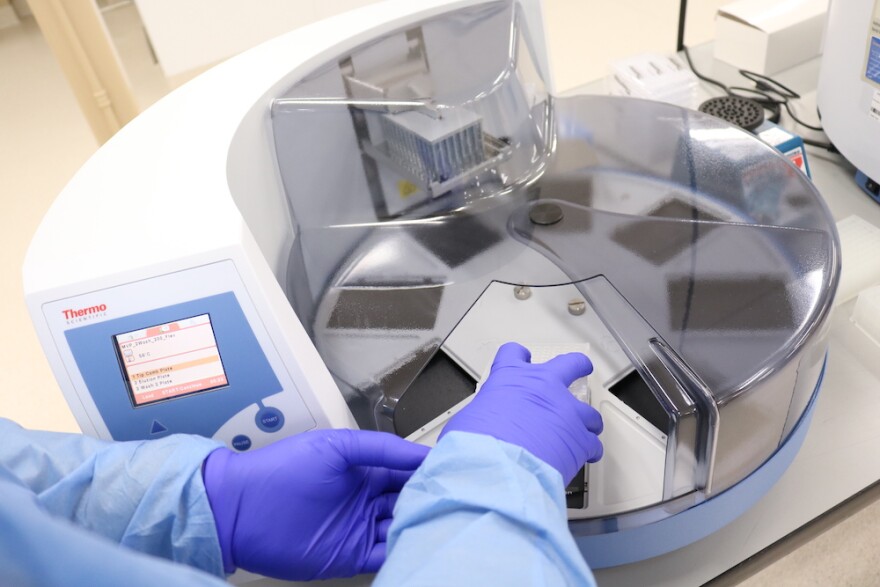It’s become obvious that without a vaccine, COVID-19 will be with us for a while.
Testing and contact tracing have helped to stop the spread of the virus, but half of COVID cases begin with catching the virus from someone who doesn’t have symptoms.
A San Antonio non-profit biotech organization is pursuing more testing for asymptomatic people, not only in San Antonio, but across the country.
Ty Denton is a sophomore at Somerset High School just southwest of San Antonio. Denton's’s school is participating in a pilot project that concentrates on COVID testing for asymptomatic people.
“They give me this Q-tip and they tell me to rotate for five seconds on each nostril, so I just do that for five seconds and it's done... that’s it,” he said.
He gets tested once a week.
“Yeah, it’s a sigh of relief and that I know that I'm not getting anyone else sick, and that’s good to know,” Denton added.
The first round of the testing at his high school uncovered four cases of COVID-19.
The asymptomatic testing program is the brainchild of three wealthy San Antonio area businessmen. One of them is Graham Weston, the former CEO of tech company Rackspace. He caught the virus from his son, who wasn’t showing any symptoms. Weston became so ill that he changed his will and prepared for the worst.
When he recovered, he had an idea. Weston explained the concept during a news conference.
“Asymptomatic testing [is] also called assurance testing. The idea is to go to a population who don’t have the disease and find those who actually have the virus silently. That’s the idea of assurance testing,” he said.
Weston and two partners created a nonprofit called Community Labs, and they partnered with Biobridge Global, a large biomedical company based in San Antonio, to build a large COVID testing facility.
There’s nothing new about their actual test. It’s an established, FDA approved COVID test.
The test is less intrusive and can even be self administered. What’s different here is Community Labs can handle high volumes of testing and quickly turn around the results.
Bruce Bugg, vice chairman of Community Labs, said they typically get the results back in about 15 hours.
“But because the demand is rising we want to make sure we don’t over promise and under deliver so we’re saying 24 hours,” he added.
Bugg explained that at present, Community Labs can handle more than 12,000 tests a day. The plan is to scale up to 100,000 daily.
And do the founders of Community Labs hope to make a huge profit by expanding the program across the country? Bugg said they’re giving the plans out to anyone who wants them.
“So we are putting all of our plans, all of our technology that we are using, which lab equipment we’re buying up on the website and making it totally transparent so it’s kind of a do it yourself kit so that other communities that may be interested in replicating what we’re doing here in San Antonio,” he said.
Bugg explained the program will work well for what they call micro populations. Schools and large businesses are an example. Those micro populations would also have to determine how to pay for the tests, which cost about $35 each.
The city of Phoenix is interested and recently sent a delegation to check out Community Labs firsthand. Recently, Bexar County commissioners approved $304,000 for a program with Community Labs to test 750 children and staff at five county foster children’s shelters each week until all are tested.
At Somerset High School, Superintendent Saul Hinojosa said the testing has caused “the anxiety level to go down.”
When the Somerset school district returned to in person learning many students stayed away because they were afraid of the virus.
DJ Denton, Ty’s mother, is a coach at Somerset High. She said the kids were coming back.
“The peace of mind is really the biggest part of it," she said. "I’m sitting here right now looking at 20 kids know they’re all negative… That everyone here tested negative just a couple of days ago. I think this is probably the most sterile environment anybody could work in or go to school in.”


